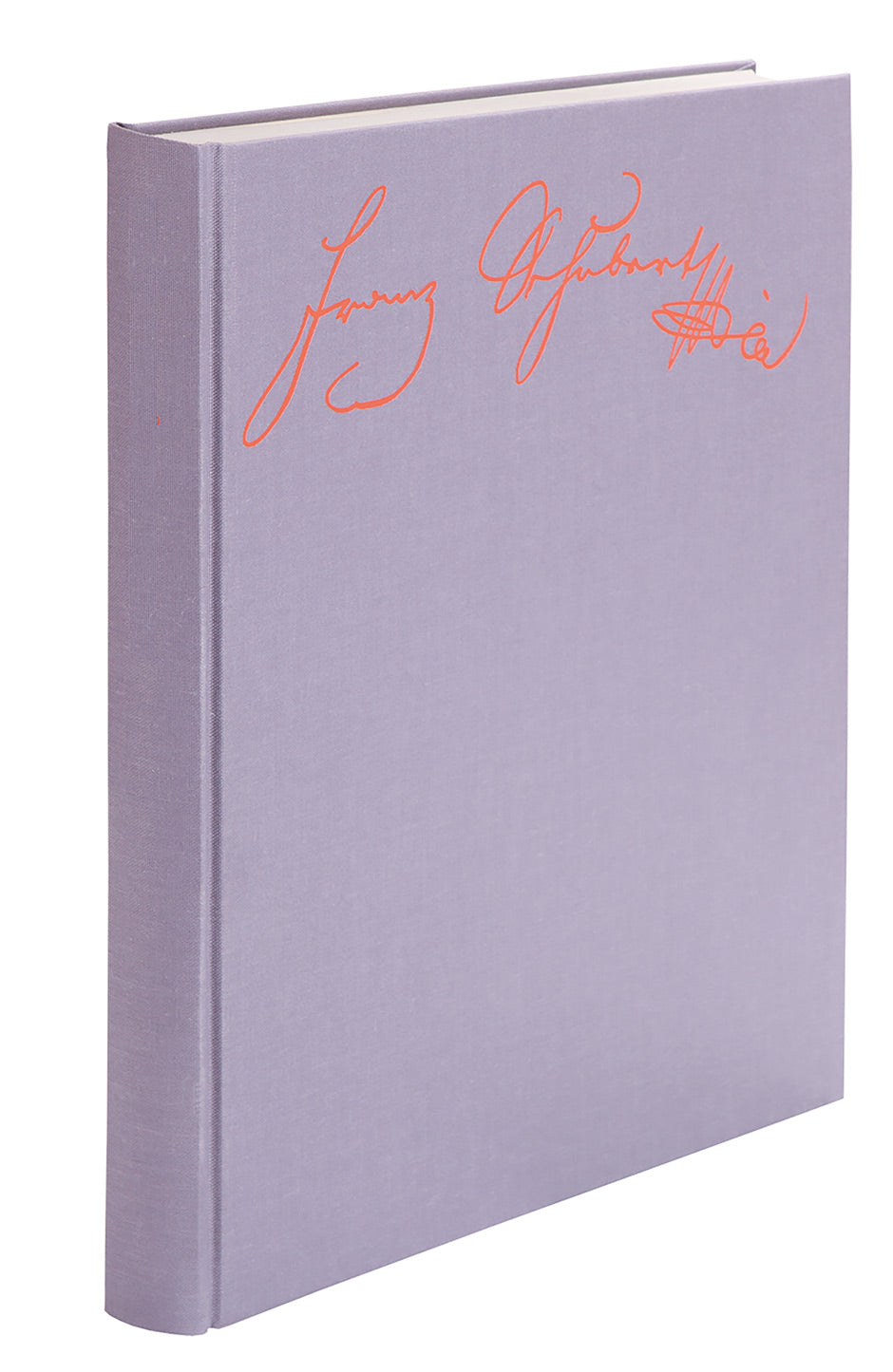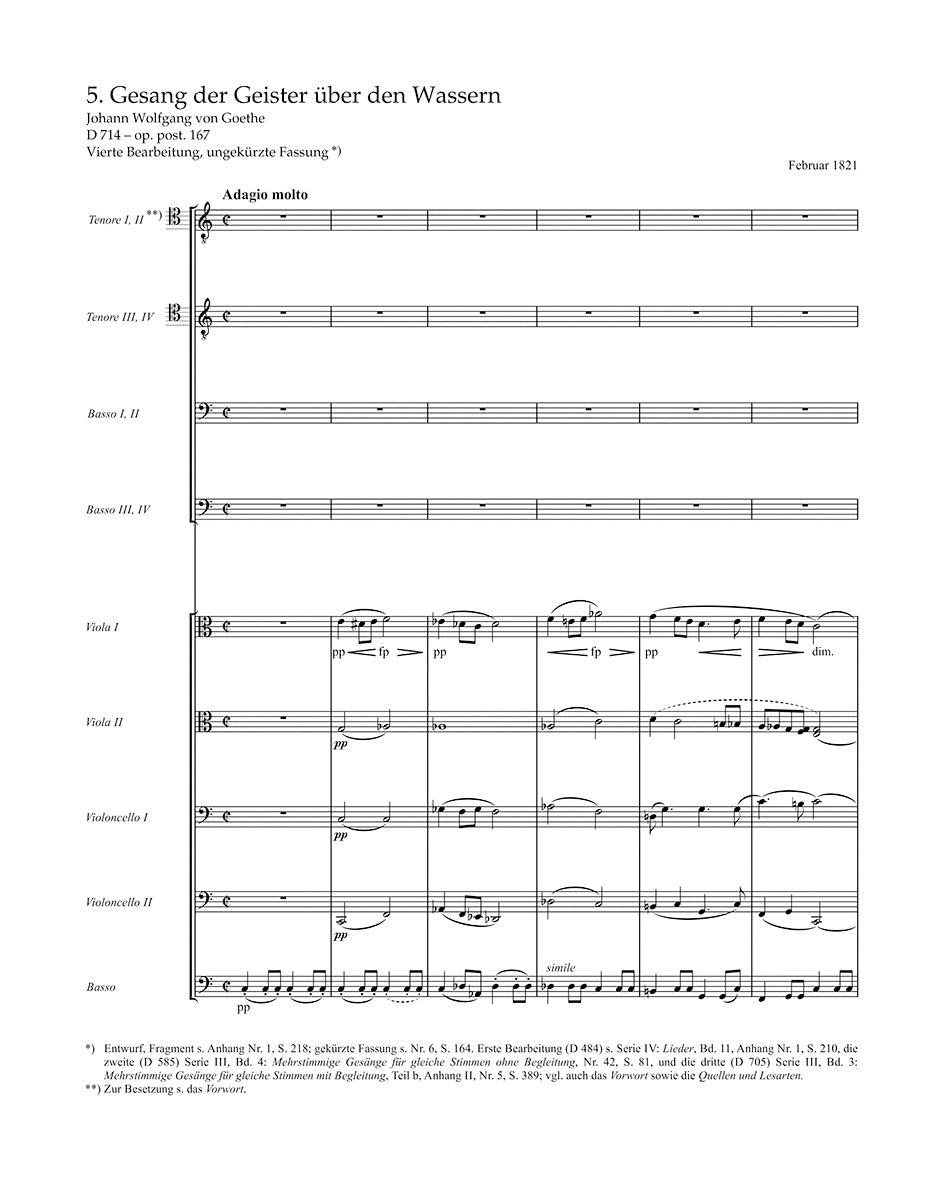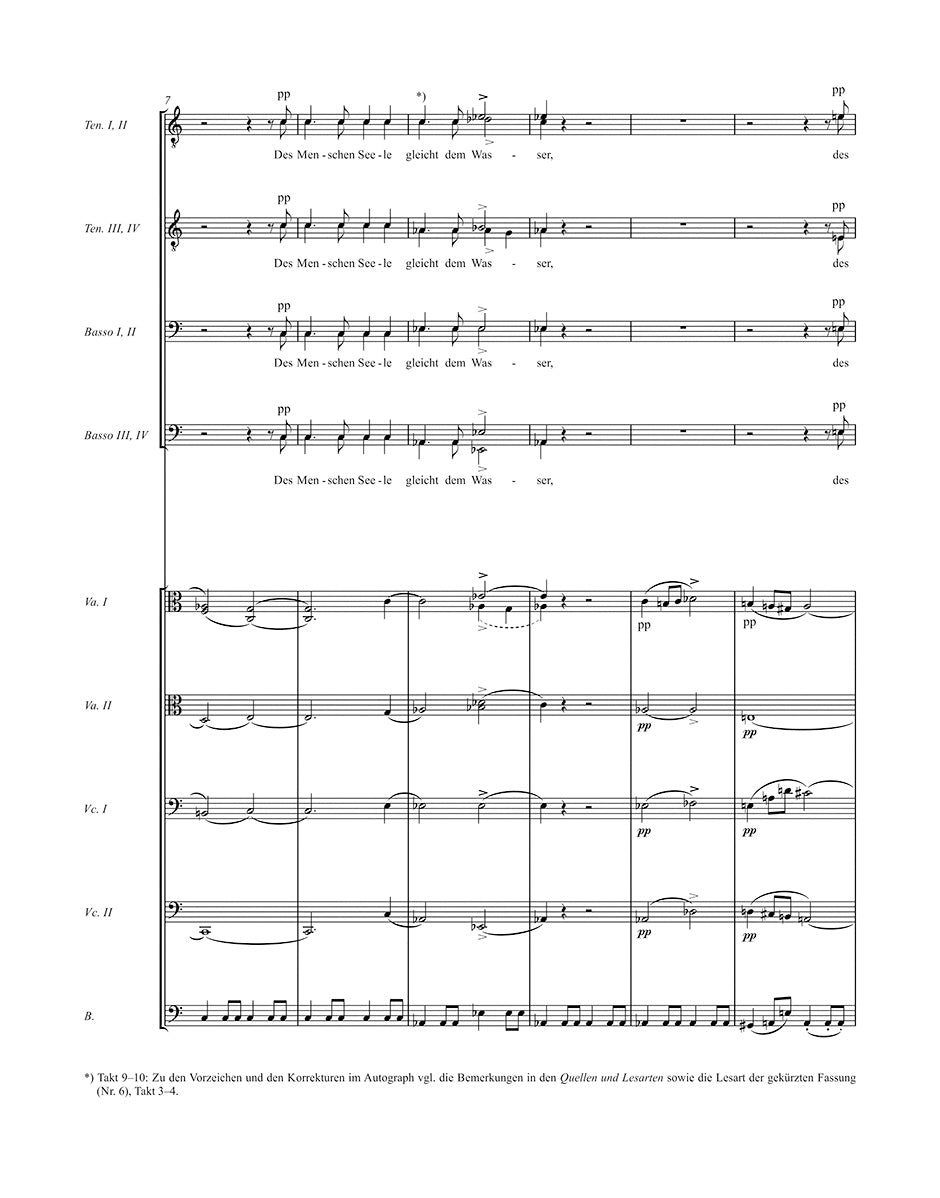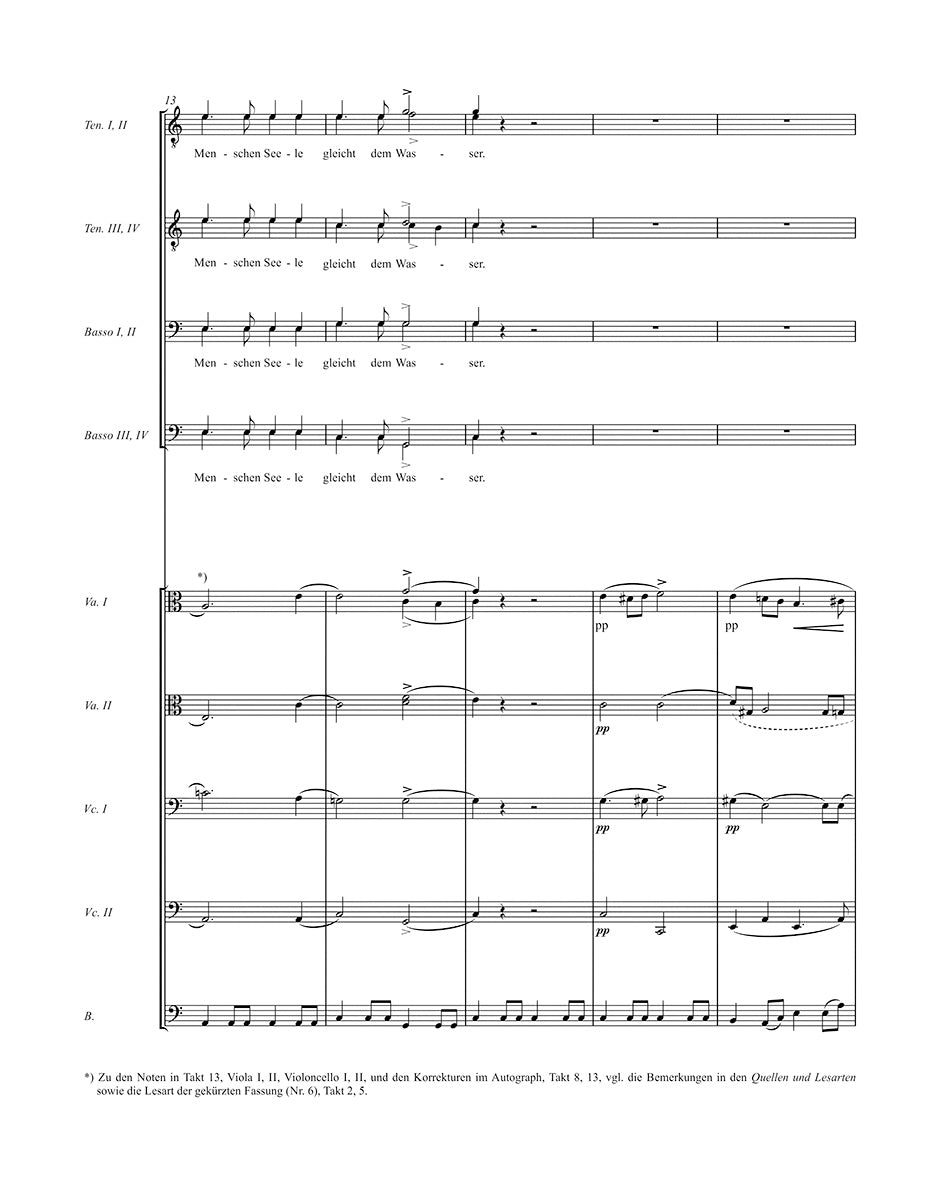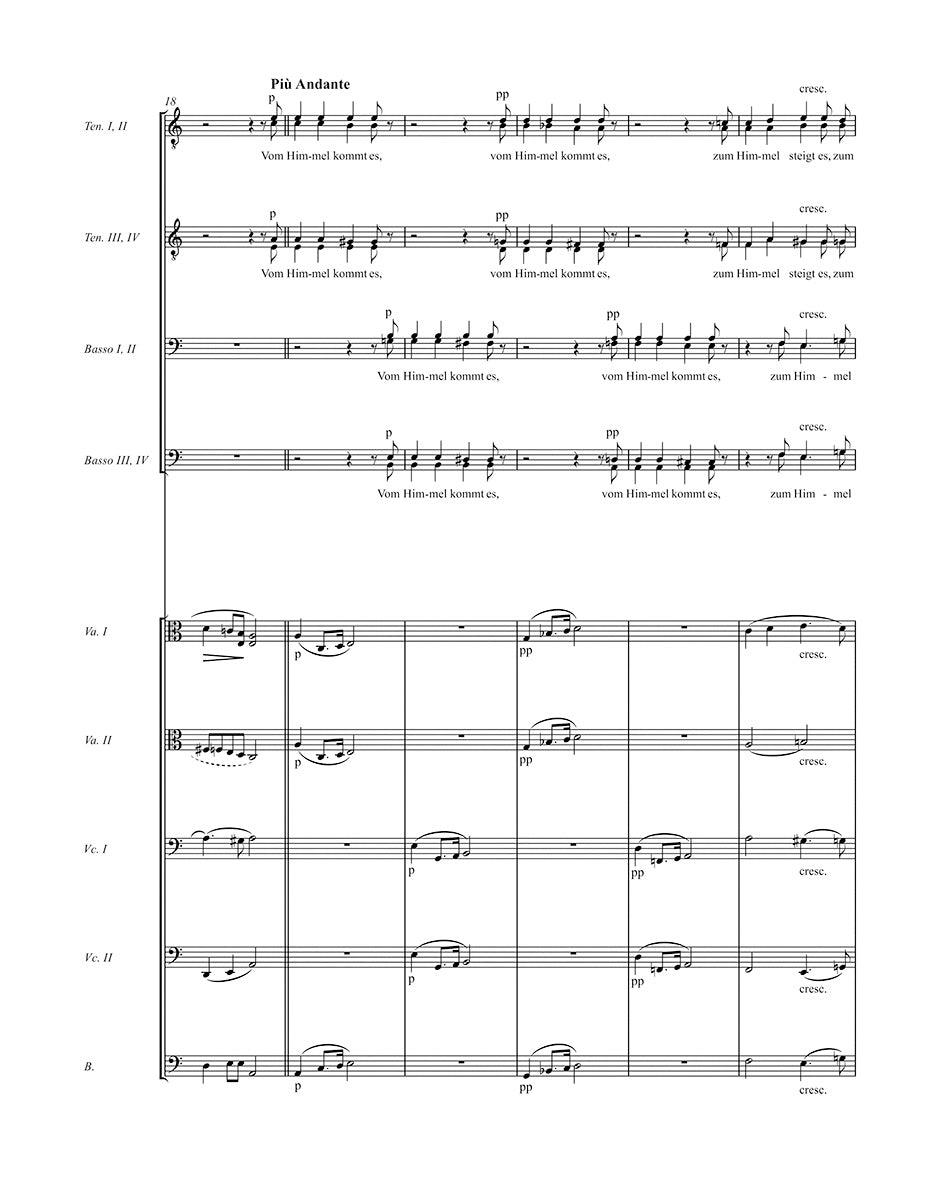Schubert: Partsongs with Orchestral Accompaniment
New Schubert Edition III/1
Expected to ship in about a week.
- Composer: Franz Schubert (1797-1828)
- Editors: Vasiliki Papadopoulou, Michael Kube
- Format: Full Score – Hardcover
- Binding: Hardcover
- ISMN:
- Size: 10.2 x 13.0 inches
- Pages: 263
- Urtext / Critical Edition
Description
Volume III/1 of the "New Schubert Edition" presents Franz Schubert's partsongs with orchestra or instrumental ensemble. The instrumentation of these nine compositions is varied, ranging from male voices with low strings in "Gesang der Geister über den Wassern" (D 714) or male voices with four horns in "Nachtgesang im Walde" (D 913), to larger-scale occasional works featuring woodwinds, horns, trombones, timpani, vocal soloists, and strings, as in the "Spendou Cantata" (D 472). The fragmentary draft of "Gesang der Geister über den Wassern" is also included in the appendix.
The differentiated editorial treatment of the individual works, which takes into account the heterogeneous source situation, is particularly noteworthy. Thus, based on Schubert's autograph of "Gesang der Geister über den Wassern", which contains extensive cuts, new insights were gained which led to a re-evaluation and revised edition of the composition in two versions. The comments in "Sources and Readings" provide insights into the revision process as well as explanations of previously misinterpreted passages.
The Foreword also sheds light on the contexts in which the works were composed and provides information on the instrumentation, premieres and other early performances as well as authors of the texts. for example, references to the unknown author of the text for the cantata "Wer ist groß?" (D 110), which contrasts Napoleon Bonaparte with the Austrian Emperor Franz I, were discovered as well as a document by Schubert's friend Josef Wilhelm Witteczek on the lost cantata "Prometheus" (D 451), in which the previously only summarily known parts of the work are listed individually including text incipits.
Contents:
- Zur Edition
- Vorwort
- Faksimiles
- Mehrstimmige Gesänge mit Orchesterbegleitung
-
- Wer ist groß? D 110
-
- Namensfeier D 294
-
- Kantate zu Ehren von Josef Spendou
- 3a. Ouvertüre in B D 470
- 3b. Kantate zu Ehren von Josef Spendou D 472
-
- Lied ("Brüder, schrecklich brennt die Träne") D 535
-
- Gesang der Geister über den Wassern D 714
-
- Gesang der Geister über den Wassern D 714
-
- Am Geburtstage des Kaisers D 748
-
- Nachtgesang im Walde D 913
-
- Glaube, Hoffnung and Liebe D 954
- Anhang
-
- Gesang der Geister über den Wassern, Entwurf D 714
-
- Drum Schwester and Brüder, Fragment eines begleiteten Vokalsatzes D Anh. I, 25
- Quellen and Lesarten
- Alphabetisches Verzeichnis der Textdichter
- Alphabetisches Verzeichnis der Titel and Textanfänge
Publishers use a lot of words to describe what they sell, and we know it can be confusing. We've tried to be as clear as possible to make sure you get exactly what you are looking for. Below are descriptions of the terms that we use to describe the various formats that music often comes in.
Choral Score
A score for vocalists that only contains the vocal lines. The instrumental parts are not there for reference. Generally, cheaper than a vocal score and requires multiple copies for purchase.
Facsimile
Reproductions of the original hand-written scores from the composer.
Full Score
For ensemble music, this indicates that the edition contains all parts on a single system (there are not separate parts for each player). In larger ensembles, this is for the conductor.
Hardcover
Hardbound. Generally either linen-covered or half-leather.
Orchestral Parts
Similar to a wind set, this is a collection of parts. In the case of strings, the numbers listed are the number of copies included, though generally these are available individually (often with minimum quantities required).
Paperback
When publishers offer multiple bindings (e.g. hardcover) or study scores, this is the "standard" version. If you're planning to play the music, this is probably what you want.
Performance / Playing Score
A score of the music containing all parts on one system, intended for players to share. There are not separate parts for each player.
Set of Parts
For ensemble music, this indicates that there are separate individual parts for each player.
Solo Part with Piano Reduction
For solo pieces with orchestra, this is a version that contains a piano reduction of the orchestra parts. For piano pieces, two copies are typically needed for performance.
Study Score
A small (think choral size) copy of the complete score meant for studying, and not playing. They make great add-ons when learning concertos and small chamber works.
Vocal Score
A score prepared for vocalists that includes the piano/organ part or a reduction of the instrumental parts.
Wind Set
For orchestral music, this is a collection of wind and percussion parts. The specific quantities of each instrument are notated.
With Audio
In addition to the printed music, the edition contains recordings of the pieces. This may be an included CD, or access to files on the internet.
With / Without Fingering (Markings)
Some publishers prepare two copies - a pure Urtext edition that includes no fingering (or bowing) suggestions and a lightly edited version that includes a minimal number of editorial markings.

